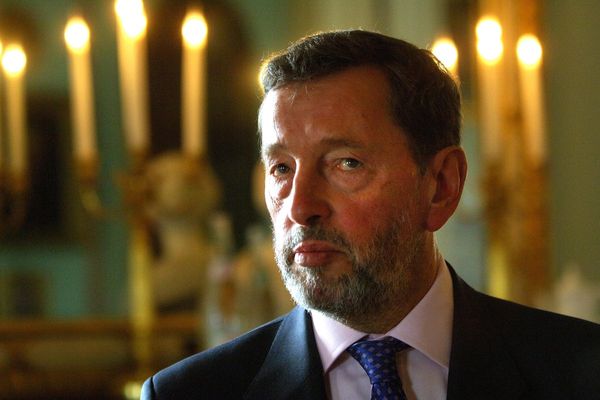
It takes a particular, almost wilful blindness to sit through last week’s 90-minute US presidential debate and still miss the big story of the moment: the dramatic acceleration of the right’s embrace of anti-immigrant racism. Welcome to the end days of oh-so-serious journalism where “sane-washing” has cleansed any risk of telling us what’s going on.
“Sane-washing” is a descriptor adopted out of social media by media critics over the past week, including at the Columbia Journalism Review, to describe the media’s response to the mess of the Trump moment, as well as the populist right’s racist re-othering of migrants as the key to firing up its supporters.
Trump, of course, brings his own particular problems for journalists: his erratic syntax, maxed-out hyperbole and elliptical anecdotes make it hard if your job is to wrangle his message into something comprehensible.
The journalistic default has been to try to make some sense out of the crazy, relying on brief, selected quotes for television — often less than a complete sentence, like “very fine people on both sides” — and rearranging them into something closer to acceptable English.
Trouble is, this clean-up of Trump’s words has evolved into a rinsing; rendering safe his anecdotes that threaten harm in the real world. It risks mistranslating his coded conspiracy-speak (much as Australian media often struggled in translating Scott Morrison’s religious references into an acceptably secular journalese).
And so it happened in the post-debate commentary last week, from our own ABC to The New York Times. Rather than jump on Trump’s escalation of the Republican attack on the working-class Haitian-American community in Springfield, Ohio, the commentariat tried to hurry past it all, with a “nothing to see here” confidence that Trump’s claim had been safely fact-checked into irrelevance by debate moderators.
Good luck with that. The right-wing noise machine in the US has long been working to make Springfield the poster child of migration dysfunction. Trump’s vice-presidential running mate Senator JD Vance has been banging on about it for months. In the lead-up to the debate, key Trump surrogates piled on, including his proposed “government efficiency czar” Elon Musk and, umm, his “traveling companion”, 31-year-old Laura Loomer (whose comments have been tagged as racist even by the Murdochs’ Wall Street Journal).
It aligns with the fake news talking points in Russia’s “guerilla media campaign” to shape (including with direct payments) the content of right-wing social media influencers, and comes paired with News Corp’s own campaign over alleged migrant crime (one familiar to Australian audiences). The day after the debate, the Murdoch-owned New York Post front-paged: “Cookie and his monsters: How Venezuelan gang invaded a Colorado suburb”.
Australians are familiar with Springfield-style moral panics about towns and suburbs “taken over” by a new migrant community (like Cabramatta in Sydney’s west, now identified by even The New York Times as a tourist draw). Claims of migrant crime have long stirred the racist imagination in Australia as much as the US (*cough* African gangs).
In the US, the semiotics of “Springfield” make it the perfect stand-in for a white America under threat, with the conjoining of two virginal frontier-gesturing English words into America’s most fitting (and common) small-town name. It’s been the fictional home of both All in the Family and The Simpsons.
Haiti, too, as a nation built off the continent’s only successful slave revolt, has its own darker place in America’s white supremacist nightmarish imaginings, while the dog-and-cat eating trope has deep racist roots.
From President Joe Biden on down, there’s kick-back against the anti-immigrant narratives, forcing a rethink from US news media. Both The New York Times and The Washington Post finally circled back with deeper looks into the story over the weekend.
But as journalists refold their sane-washed laundry, it’s time to recognise the hard fact: for the right around the world, the racism is the point. It can’t be laughed off or fact-checked away. In the US, as in Australia, it can only be acknowledged and confronted.
How should the media cover racist statements from politicians and public figures? Let us know your thoughts by writing to letters@crikey.com.au. Please include your full name to be considered for publication. We reserve the right to edit for length and clarity.







